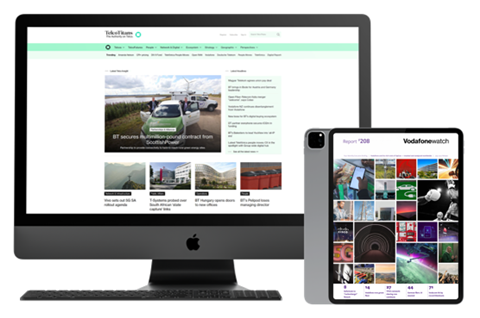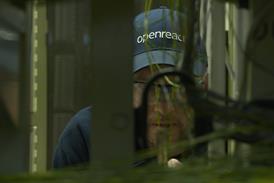- Telcos
- Network & IT
- Infra
- People
- Finance & Strategy
- Events
- Regions
- Thought Leadership
 Boldyn’s marathon man: Brendan O’Reilly on building ‘win‑win’ shared networks for the UK
Boldyn’s marathon man: Brendan O’Reilly on building ‘win‑win’ shared networks for the UK Fix telco CPQ to accelerate B2B expansion
Fix telco CPQ to accelerate B2B expansion AI, edge and colo: Nokia’s Neutral Host Index redraws telecom’s $200bn shared-infra map
AI, edge and colo: Nokia’s Neutral Host Index redraws telecom’s $200bn shared-infra map Moving fast to fix things: how AI-driven network assurance is reshaping global telecoms
Moving fast to fix things: how AI-driven network assurance is reshaping global telecoms
- Premium
- TelcoX EMEA Leadership & Performance Study
BT policy chief calls for TV distribution rethink as IP takes hold

Policy & Public Affairs Director Helen Burrows describes current content distribution regulation as insufficient and outmoded, with need to update and reflect change in audience demand.
This article includes:
- Organisations: Broadpeak; BT; Department For Culture Media And Sport; Ofcom; Oliver & Ohlbaum Associates; UK government.
- Geographic: United Kingdom.
- People: Chris Bramley; Gabriela Styf Sjöman; Helen Burrows; Helen Keefe.
- Themes: Broadcast TV; Broadband; Digital inclusion; Digital terrestrial TV (DTT); Digital transition; IPTV; Multicast Assisted Unicast Delivery; Net neutrality; Network infrastructure; Public policy; Public Switched Telephone Network; Regulation; Streaming; Video Distribution.
- Events: UK General Election 2024.
This is Subscription-Only Content. Subscribe to continue reading
Already a subscriber? Sign in here, or contact us to check if your company has access.

Become a TelcoTitans Subscriber Today
Stay ahead and get access to the telco and digital infra content that matters to you.
TelcoTitans subscriptions include access to:
- TelcoTitans’ industry-leading telco and digital infra news, insight, and analysis
- Infrawatch, Eventwatch, and Telcofutures content
- Subscriber-only weekly newsletter briefings and breaking news alerts
- And so much more!
“Super intelligence, consistently high quality, and easy to digest” – Partner, Deloitte.




















